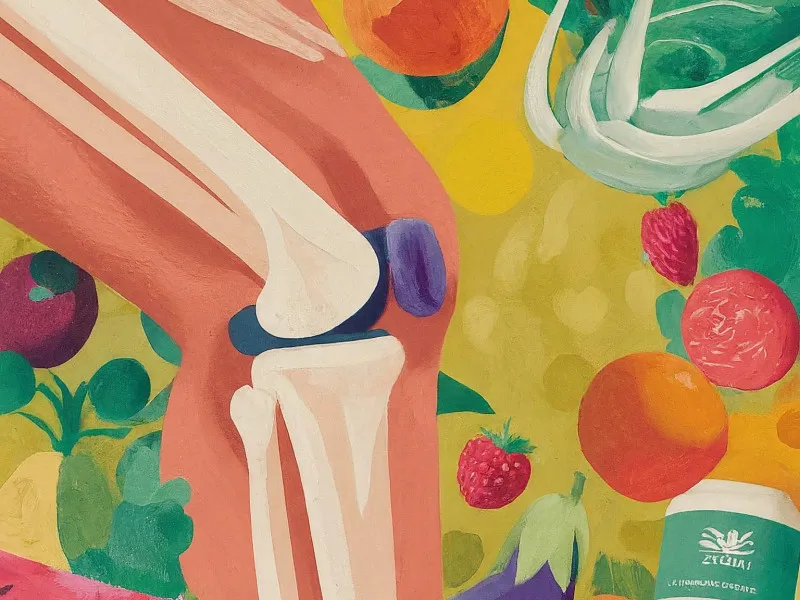
Recovering from a patellar dislocation can be a daunting journey, involving not just physical rehabilitation but also careful attention to nutrition and supplementation. Understanding the pivotal role that diet plays in healing and joint health is crucial for anyone looking to bounce back stronger from such injuries. In this article, we explore how proper nutrition and the right supplements can bolster recovery from patellar dislocation, aiming to arm patients with knowledge that supports their healing journey.
The Foundation of Recovery: Why Nutrition and Supplements Matter
At the core of any recovery process, nutrition plays an indispensable role. Just as a car needs the right fuel to run efficiently, your body requires a balanced diet to heal. After a patellar dislocation, the body’s demand for energy and nutrients increases to repair tissues, reduce inflammation, and strengthen the knee joint. An inadequate intake of vitamins, minerals, and other nutrients can slow down the healing process, prolonging pain and disability.
Key Nutrients for Knee Health
- Protein: Essential for tissue repair and muscle strength. Lean meats, beans, and dairy are excellent sources.
- Vitamin C: Known for its role in collagen formation, a critical component of cartilage. Citrus fruits, peppers, and broccoli are rich in vitamin C.
- Omega-3 Fatty Acids: Help reduce inflammation. Found in fish, walnuts, and flaxseeds.
- Calcium and Vitamin D: Vital for bone health. Dairy products, fortified foods, and sunlight exposure can boost your intake.
- Magnesium: Important for muscle function and bone integrity. Nuts, whole grains, and leafy greens are good sources.
Supplements for Joint Health and Recovery
While a balanced diet is paramount, certain supplements can offer additional support for joint health:
- Glucosamine and Chondroitin: These supplements may support cartilage repair and reduce joint pain.
- Fish Oil: Rich in omega-3 fatty acids, fish oil supplements can help manage inflammation.
- Vitamin D: Essential for calcium absorption and bone health, especially important in regions with limited sunlight exposure.
- Curcumin: The active component in turmeric, curcumin has potent anti-inflammatory properties.
Personalising Your Nutrition Plan
Individual needs can vary widely, making it essential to tailor your diet and supplement intake to your specific situation. Consulting with a healthcare provider or a dietitian can ensure that your nutrition plan supports your recovery goals without compromising other aspects of your health.
FAQs on Nutrition and Supplements for Joint Recovery
Q1: How quickly can nutrition and supplements impact my recovery?
While immediate effects are unlikely, consistent dietary improvements and appropriate supplementation can support healing over weeks to months.
Q2: Can diet alone prevent patellar dislocations?
Diet plays a crucial role in overall joint health but must be combined with proper exercise, weight management, and injury prevention strategies.
Q3: Are there any supplements I should avoid during recovery?
Some supplements can interact with medications or may not be suitable for everyone. It’s essential to discuss any new supplements with your healthcare provider.
Q4: How can I ensure I’m getting enough of these nutrients?
Incorporating a variety of nutrient-rich foods into your diet is key. If you’re concerned about deficiencies, a healthcare provider may recommend blood tests or specific supplements.
Q5: Is it possible to take too much of a supplement?
Yes, excessive intake of certain supplements can be harmful. Adhere to recommended doses and consult with a healthcare professional.
Q6: Can lifestyle changes complement my nutrition plan?
Absolutely. Adequate rest, stress management, and regular, gentle exercise can enhance your body’s ability to heal and benefit from a nutritious diet.
Incorporating strategic nutrition and supplementation into your recovery plan can significantly impact your healing journey from a patellar dislocation. By fueling your body with the right nutrients and supplements, you support the intricate process of tissue repair, inflammation reduction, and joint strengthening. Remember, though, this journey is unique to each individual. Tailoring your approach with professional guidance ensures your path to recovery is as efficient and effective as possible.
